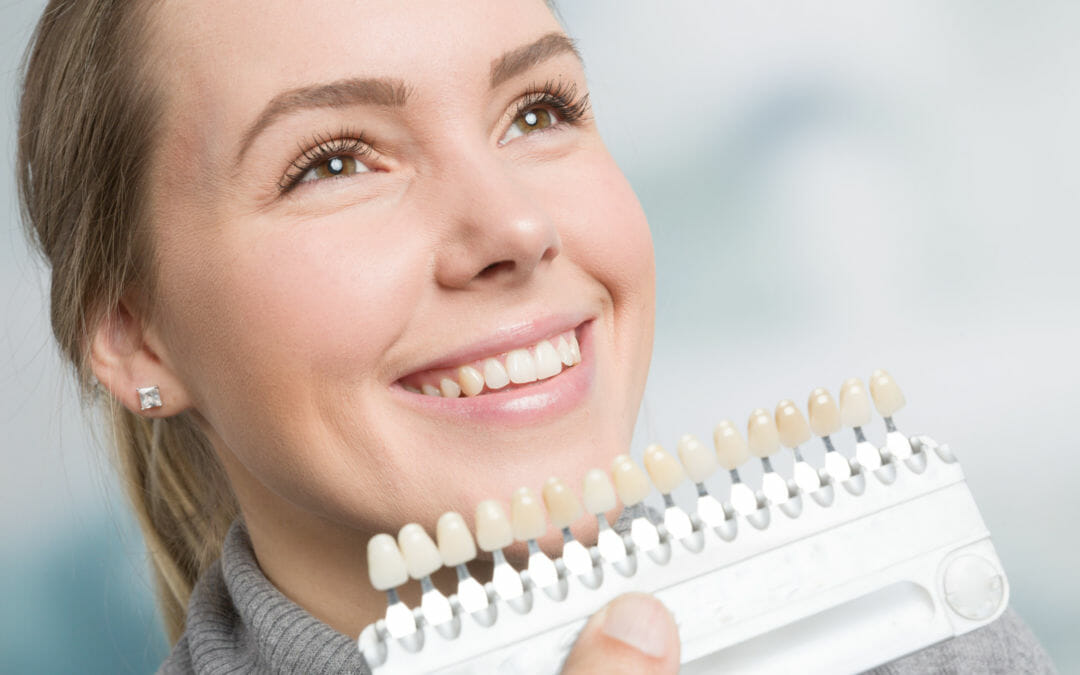Restoring your smile is easier today than ever before. With so many cosmetic dentistry options to choose from, you can deal with almost any imperfection that makes you feel self-conscious. One of the most popular options for dealing with stubborn discoloration and stains, cracks or chips, or other minor but visible issues is the dental veneer. Named after the method of applying thin layers of wood to furniture, a dental veneer involves placing a thin sheet of translucent material over the affected tooth or teeth. This creates the appearance of a pearly white smile without having to remove teeth or majorly reshape them for the addition of a crown or cap.
While veneers are easily added to the teeth with a minimal installation process, there is some concern that they can damage or even ruin your teeth. This is rarely an issue for anyone that maintains basic oral hygiene routines and can commit to seeing their dentist twice a year for cleaning. Discover what can go wrong with veneers and why these issues are unlikely to happen for most patients.
Attaching the Veneer
Of all the options for restoring your smile and improving the look of damaged teeth, veneers require the least removal of tooth material. When compared to crowns and caps, veneers leave the majority of the tooth untouched and in its original shape. Only the front-facing and most visible surface of the tooth is lightly sculpted to create the perfect bonding point for the veneer. With minimal tooth removal, there is little chance of damage being done to the pulp or nerves during attachment. It also leaves you with more options for changing up your look later. The veneer is attached with a long-lasting adhesive that can be removed later with buffing and chemicals that help soften the material.
Damage from Removing the Veneer
If the veneer needs removal or replacement many years later, it’s not too difficult to accomplish this without risking damage to the teeth. Most people can have new veneers placed multiple times, giving them decades of beautiful teeth without complications. At some point, you may decide to transition away from veneers. You can still add other options like crowns or dental implants without concerns about the veneers having interfered with those options.
Since the majority of the original tooth remains intact in most cases, there’s plenty of material left for anchoring a crown. Keeping the original tooth’s roots in place maintains jaw tissue health so implants can go in with less preparation work. As long as you choose a skilled dentist to remove the veneers, you should expect minimal damage to the teeth from the process.
The Importance of Oral Hygiene
The one risk of damage from veneers is largely under your control. Veneers can trap food debris and bacteria below them and encourage decay, but only if you fail to brush twice a day. You need to stick to a regular oral hygiene routine to succeed with veneers. Decay under the veneer can severely damage the tooth and may lead to the loss of it. Once you commit to veneers, make sure you set reminders for your daily brushing routine. Flossing is also essential, but it creates a risk of damage to the veneer itself. Handle flossing with care to ensure you remove food particles that cause debris without harming your dental work.
Floss Carefully
As with crowns and many other types of dental work, veneers need a little extra attention and care when flossing. The edges of the covers can catch the floss material and snag it, leading to pressure on the veneer and potential damage. Instead of just sliding the material between the teeth and moving back and forth, try to wrap the floss in a C-shape around each side of the tooth with a veneer. Gently slide the floss back and forth to remove any plaque without putting pressure on the dental work. Then slowly slide the floss out, repeating the process on the other side of the tooth.
Avoid Veneer Damage
There are many common habits that can put too much stress on the veneers, risking damage to the underlying teeth as well. Chewing on ice, pencils, or even your fingernails isn’t recommended. Sticky, very chewy, and hard foods are also best to avoid. Dental patients that grind their teeth or clench their jaw should get a mouthguard custom formed after their veneers are put in place. This prevents pressure on the veneers when wearing a night guard. Avoid drinking alcohol on a daily basis since it can weaken the adhesive used to hold the material in place. Check the veneers, especially along the edges and where they attach to the teeth, for signs of damage each time you brush. Seeing your dentist if you notice any signs of lifting or looseness will prevent the actual detachment and ensure a timely repair.
Changing Veneers
When it comes time to put on a new set of veneers for a fresh look, make sure the dentist you choose is skilled in the restoration of this kind of dental work. They can not only create a natural appearance that blends in with the rest of your smile, but they can also ensure there is minimal chance of damage to your underlying teeth thanks to a strong bond and good placement. Don’t wait if you notice your veneers are changing color or fading since that can mean they’ll also experience adhesive failure issues soon as well.
Choose Eastgate Dental Excellence for all of your veneer needs. From the initial design and placement to ongoing care and maintenance, we can help you with it all.

